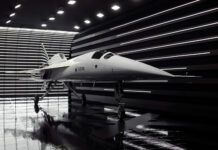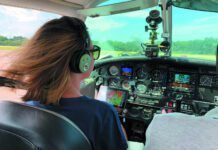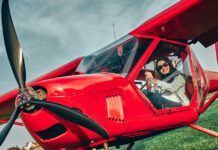MAX Pilot Training Update
Boeing 737 MAX pilots will get increased ground training on the aircraft’s Maneuvering Characteristics Augmentation System (MCAS) but won’t drill the anti-stall software in the sim according to updated training requirements under consideration by the FAA. The Boeing 737 MAX Flight Standardization Board (FSB) has sent draft recommendations to the agency saying “MCAS ground training must address system description, functionality, associated failure conditions, and flight crew alerting. These items must be included in initial, upgrade, transition, differences, and recurrent training.” To this point, there was no requirement for pilots to be trained on MCAS, which is an anti-stall system designed to push the nose of the aircraft down. In fact, many MAX pilots were unaware that it had been added to the aircraft to combat an increased tendency for the plane to pitch up because of the revised placement of the larger and more powerful LEAP engines.
Cirrus Expands Training
Cirrus is expanding its flight training services and its resources are available to all pilots, not just Cirrus owners. Cirrus Approach covers the gamut of training on the company’s platforms, including the VisionJet, but much of it applies to flying in general and Cirrus spokesman Ben Kowalski told attendees at Aero Friedrichshafen that anyone is welcome to take advantage of it. “[The program] has over 25 individual courses and hours and hours of content that anyone can access, both Cirrus owners and operators or anyone in aviation,” Kowalski said. For those transitioning to a Cirrus, the company offers the Embark program.
Stratolaunch Flies
The world’s largest aircraft has flown and a new aspect of the commercial space race has opened. Stratolaunch, a twin-fuselage, six-engine behemoth with a wingspan of 385 feet, took off from Mojave in early April and will undergo FAA certification testing over the coming months. Stratolaunch is designed to take rockets and their low-Earth orbit payloads to 35,000 feet for an airborne launch, which is cheaper and less weather-dependent than conventional launches. The company has targeted 2020 for the first revenue launch. Stratolaunch has competition from Richard Branson’s Virgin Orbital which has repurposed a Boeing 747-400 for similar service and it hopes to launch a customer rocket this summer.
Honeywell Partners with Volocopter
Avionics heavyweight Honeywell has jumped into the burgeoning air taxi industry with a partnership with Volocopter, a German company that hopes to test its aircraft and control systems in Singapore later this year. Honeywell and Volocopter will jointly develop the navigation and autonomous landing systems of the multicopter aircraft, which is designed for short trips in urban environments. “Honeywell’s wealth of experience and knowledge in the development of next-generation avionics technologies combined with our manufacturing expertise will make autonomous, on-demand air mobility a reality across the world,” said Volocopter chief technology officer Jan Hendrik Boelens.
100LL Replacement Not Imminent
A drop-in replacement for leaded avgas remains elusive and now that the legal pressure driving its development has eased, testing has slowed. A panel at Aero Friedrichshafen was told the current leadership of the Environment Protection Agency is not expected to press for a total ban on tetraethyl lead anytime soon so industry leaders say development of an alternative to 100LL will likely be driven by market demands rather than regulation. The FAA’s Piston Aviation Fuels Initiative suspended testing last year because neither of the two candidate fuels was judged a suitable drop-in replacement. Limited testing has resumed.




